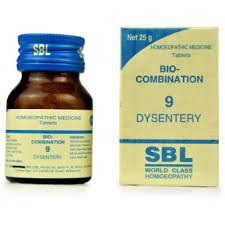
How Homeopathic Medicine Can Soothe the Symptoms of IBS: A Holistic Approach?
Irritable Bowel Syndrome (IBS) is a complex and often challenging condition that affects the digestive system, causing symptoms such as abdominal pain, bloating, and altered bowel habits.
Understanding Homeopathic Principles:
Like Cures Like:
At the heart of homeopathy is the principle of “like cures like.” This concept suggests that a substance capable of producing symptoms in a healthy individual can be used in highly diluted form to treat similar symptoms in someone who is unwell. In the context of IBS, where symptoms can vary widely among individuals, this individualized approach aligns with the diverse nature of the condition.
Key Homeopathic Remedies for IBS:
Aloe Socotrina for Cramping and Urgency:
Aloe Socotrina, derived from the succulent Aloe plant, is often considered for individuals with IBS who experience abdominal cramping and a sense of urgency. It is believed to have an affinity for the lower bowel, making it a potential choice for those with symptoms of diarrhea and tenesmus.
Podophyllum for Alternating Diarrhea and Constipation:
Podophyllum, derived from the Mayapple plant, is often considered for individuals with IBS who experience alternating episodes of diarrhea and constipation. It is believed to have an affinity for the small intestine and may help regulate bowel movements.
Colocynthis for Abdominal Pain:
Abdominal pain is a hallmark symptom of IBS, and Colocynthis, made from the bitter cucumber, is considered for individuals who experience cramping, cutting pains in the abdomen. It may be particularly helpful when the pain is relieved by pressure or bending over.
Personalized Treatment and Consultation:
One of the strengths of homeopathy lies in its personalized approach to treatment. Each individual with IBS may present a unique combination of symptoms, and a qualified homeopathic practitioner considers these intricacies when selecting an appropriate remedy. It’s crucial for individuals seeking homeopathic treatment for IBS to consult with a trained professional who can conduct a thorough assessment and guide them toward the most suitable remedies.
Integration with Conventional Care:
Individuals with IBS should maintain open communication with their healthcare providers, informing them of any homeopathic treatments being pursued. This collaborative approach ensures a comprehensive strategy that addresses both conventional and alternative perspectives.
Holistic Lifestyle Considerations:
In addition to homeopathic remedies, adopting a holistic approach to lifestyle can further support the management of IBS symptoms. This may include dietary modifications, stress management techniques such as yoga or meditation, and regular exercise. Homeopathy, in conjunction with these lifestyle considerations, forms a comprehensive strategy for addressing the multifaceted nature of IBS.
Conclusion:
As individuals seek alternatives to conventional treatments for IBS, Homeopathic Medicine For IBS emerges as a potential source of relief. Grounded in the principles of cures like and holistic healing, homeopathy addresses the individualized nature of IBS symptoms. While research on the efficacy of homeopathic remedies for IBS continues, anecdotal evidence suggests that some individuals experience soothing effects on their symptoms. In navigating the complex landscape of IBS, homeopathic medicine stands as a complementary approach that embraces the interconnected aspects of physical and emotional well-being, offering a unique avenue for soothing the symptoms of this prevalent digestive disorder.


